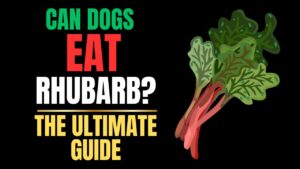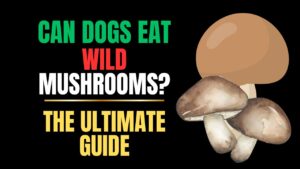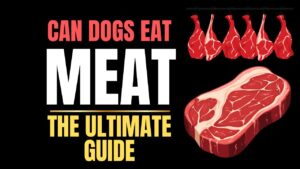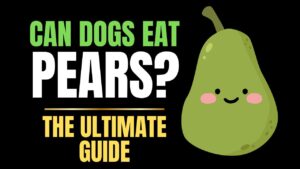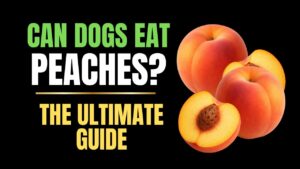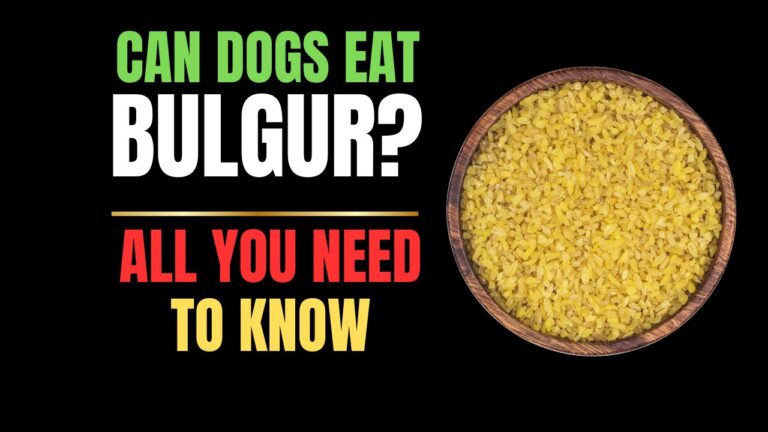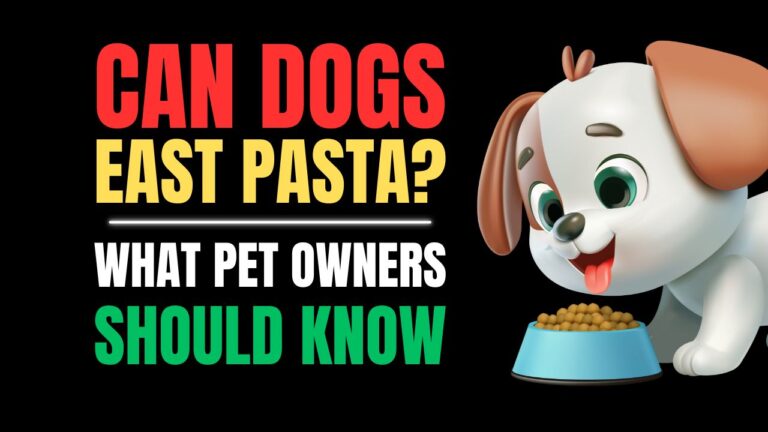
Can Dogs Eat Carrots?
Carrots are one of the most popular vegetables to share with our canine companions, but many dog owners wonder about the safety, benefits, and proper ways to feed carrots to their pets. These crunchy orange vegetables can be a healthy addition to your dog's diet when prepared correctly.
This comprehensive guide examines the nutritional benefits of carrots for dogs, potential risks, and the best ways to incorporate this vegetable into your dog's meals and treats. We'll explore different preparation methods, appropriate serving sizes, and creative ways to use carrots to support your dog's health.
Understanding how to safely feed carrots can provide your dog with valuable nutrients while adding variety to their diet and supporting their overall wellbeing.
Introduction: Carrots & Canine Nutrition
Carrots have earned their reputation as a healthy snack for both humans and dogs, but understanding the specifics of how they benefit our canine companions is essential for responsible feeding.
What This Guide Covers
This comprehensive guide provides:
Safety Analysis
Detailed explanation of carrot safety for dogs of all ages and sizes.
Health Benefits
Comprehensive overview of nutritional advantages carrots provide.
Preparation Methods
Step-by-step instructions for safe carrot preparation and serving.
Risk Assessment
Understanding potential concerns and how to avoid them.
The Versatility of Carrots
Carrots are one of the most versatile vegetables you can share with your dog. They can be served raw, cooked, frozen, or pureed, making them adaptable to different feeding preferences and dental needs. Their natural sweetness appeals to most dogs, while their crunchy texture provides dental benefits. Unlike many human foods that require careful portion control, carrots are low in calories and fat, making them an excellent treat option for weight-conscious dogs. This versatility, combined with their nutritional profile, makes carrots a valuable addition to your dog's treat repertoire when introduced properly and served in appropriate amounts.
Quick Answer
YES! Carrots are generally safe and healthy for dogs to eat in moderation.
They provide valuable nutrients, are low in calories, and can support dental health. Both raw and cooked carrots are safe, but proper preparation is important to prevent choking hazards.
Always introduce new foods gradually and consult your veterinarian if your dog has specific health conditions or dietary restrictions.
Health Benefits of Carrots for Dogs
Carrots offer numerous health advantages that make them an excellent addition to your dog's diet when fed appropriately.
Primary Health Benefits
Key advantages of feeding carrots to dogs:
Vision Support
Beta-carotene converts to vitamin A, essential for eye health and night vision.
Dental Health
Crunching raw carrots helps scrape plaque from teeth and massage gums.
Weight Management
Low in calories and high in fiber, carrots make excellent low-calorie treats.
Immune Support
Antioxidants and vitamins support a healthy immune system.
Additional Nutritional Advantages
Other benefits carrots provide for canine health:
- Digestive Health: Dietary fiber supports healthy digestion and regular bowel movements
- Skin and Coat: Vitamin A and antioxidants contribute to healthy skin and a shiny coat
- Hydration: High water content helps with hydration, especially in cooked carrots
- Joint Health: Anti-inflammatory properties may support joint function
- Cancer Prevention: Antioxidants may help reduce cancer risk
- Mental Stimulation: Chewing provides enrichment and satisfies natural chewing instincts
The Dental Benefits of Raw Carrots
Raw carrots serve as nature's toothbrush for dogs. The abrasive texture helps scrape plaque and tartar from teeth as dogs chew, while the chewing action massages gums and stimulates saliva production, which naturally helps clean the mouth. Unlike many commercial dental chews that can be high in calories, carrots provide this dental benefit without adding significant calories to your dog's diet. For maximum dental benefit, offer raw carrot sticks that are appropriately sized for your dog - large enough to require chewing but not so large that they pose a choking hazard. While carrots shouldn't replace regular tooth brushing or professional dental care, they can be a helpful addition to your dog's oral hygiene routine.
Nutritional Value of Carrots
Understanding the specific nutrients in carrots helps explain why they're such a beneficial treat for dogs.
Key Nutrients in Carrots
| Nutrient | Amount (per 100g) | Benefits for Dogs |
|---|---|---|
| Vitamin A (from Beta-Carotene) | 835μg (104% DV) | Vision, immune function, skin health |
| Vitamin K | 13.2μg (11% DV) | Blood clotting, bone health |
| Potassium | 320mg (7% DV) | Nerve function, muscle health |
| Fiber | 2.8g (11% DV) | Digestive health, weight management |
Nutritional Profile Comparison
How carrots compare to other common dog treats:
Low Calorie
Only 41 calories per 100g compared to 300-500 in commercial treats.
High Water Content
Approximately 88% water, helping with hydration.
Low Fat
Only 0.2g fat per 100g, ideal for weight management.
Natural Sugars
Contains 4.7g natural sugars per 100g, much less than many fruits.
Vitamin A Conversion Process
How dogs process beta-carotene from carrots:
- Limited Conversion: Dogs convert less beta-carotene to vitamin A than humans
- Safe Levels: Unlike pre-formed vitamin A, beta-carotene is not toxic in high amounts
- Storage: Excess beta-carotene is stored in fat cells or excreted
- No Overdose Risk: Unlike vitamin A supplements, carrots don't cause vitamin A toxicity
- Efficient Utilization: Dogs utilize the converted vitamin A very efficiently
- Skin Coloration: Very high consumption may temporarily orange-tint light-colored fur
The Beta-Carotene Advantage
One of the key nutritional advantages of carrots is their high beta-carotene content, which functions as a provitamin A carotenoid. This means the body converts it to vitamin A as needed, creating a natural safety mechanism that prevents vitamin A toxicity. Unlike pre-formed vitamin A found in supplements and animal products, which can be toxic in high doses, the beta-carotene in carrots is converted only as the body requires it. Any excess is either stored in fatty tissue or excreted. This makes carrots a much safer source of vitamin A than supplements, especially for dogs who might consume large quantities. The conversion process is less efficient in dogs than in humans, which further reduces any risk of vitamin A overload from carrot consumption.
Potential Risks & Precautions
While carrots are generally safe for dogs, there are some potential concerns to be aware of.
Primary Safety Concerns
Potential risks associated with feeding carrots:
Choking Hazard
Whole carrots or large pieces can obstruct airways, especially in small dogs.
Dental Damage
Very hard frozen carrots might crack teeth in dogs with dental issues.
Digestive Upset
Sudden introduction of large amounts may cause gas or diarrhea.
Allergic Reactions
Rare, but some dogs may be allergic to carrots.
Specific Risk Scenarios
Situations requiring extra caution:
- Small Dogs & Puppies: Higher choking risk with whole or large carrot pieces
- Dental Problems: Dogs with weak or damaged teeth should avoid hard raw carrots
- Diabetes: Monitor carbohydrate intake, though carrot sugar content is relatively low
- Kidney Issues: Potassium content may need monitoring in dogs with kidney disease
- Pancreatitis: While low in fat, always consult your vet before dietary changes
- Pregnant/Nursing Dogs: Safe in moderation, but ensure balanced nutrition
Risk Prevention Strategies
How to minimize potential risks when feeding carrots:
| Risk | Prevention Method | Alternative Approach |
|---|---|---|
| Choking | Cut into appropriate-sized pieces | Grate or puree carrots |
| Dental Damage | Avoid frozen carrots for dogs with dental issues | Offer cooked, softened carrots |
| Digestive Upset | Introduce gradually in small amounts | Start with cooked carrots, which are easier to digest |
| Nutritional Imbalance | Limit to 10% of daily calorie intake | Use as treats, not meal replacements |
The Choking Hazard Reality
Choking is the most significant risk associated with feeding carrots to dogs. Whole baby carrots or large chunks of regular carrots can easily become lodged in a dog's throat, especially in small breeds or enthusiastic eaters who don't chew properly. To prevent choking, always cut carrots into pieces appropriate for your dog's size - for small dogs, this means pea-sized pieces or grated carrots; for medium dogs, dime-sized pieces; and for large dogs, pieces no larger than a quarter. Supervise your dog when they're eating carrots, especially when introducing them for the first time. Never give a whole carrot to a dog to chew on unsupervised, as breaking off large pieces can lead to obstruction. If you prefer to give larger pieces for dental benefits, choose pieces that are too large to swallow whole but small enough that they won't completely block the airway if accidentally swallowed.
Carrot Preparation Guide
Proper preparation ensures your dog can safely enjoy the benefits of carrots while minimizing risks.
Preparation Methods
Different ways to prepare carrots for dogs:
Thoroughly wash carrots to remove dirt, pesticides, and bacteria. Use a vegetable brush for best results.
Peeling removes potential contaminants but also some nutrients. Organic carrots may not need peeling.
Cut into size-appropriate pieces to prevent choking. Consider your dog's size and chewing style.
Steaming or boiling softens carrots, making them easier to digest for some dogs.
Serve at room temperature. Avoid adding salt, butter, oils, or seasonings.
Preparation Methods to Avoid
These preparation methods can be harmful to dogs:
- Buttered Carrots: Added fats can cause pancreatitis or weight gain
- Salted Carrots: Excess sodium is harmful to dogs
- Carrots with Seasonings: Onion, garlic, or other seasonings can be toxic
- Candied Carrots: High sugar content is unhealthy for dogs
- Canned Carrots: Often contain added salt or preservatives
- Carrot Cake: Contains sugar, fats, and potentially toxic ingredients
Raw vs. Cooked Carrots
Comparison of different preparation methods:
| Preparation | Benefits | Considerations |
|---|---|---|
| Raw Carrots | Maximum dental benefits, crunchiness dogs enjoy, more vitamins preserved | Choking risk, harder to digest, may cause gas in some dogs |
| Steamed Carrots | Easier to digest, nutrients largely preserved, soft texture for senior dogs | Less dental benefit, requires preparation time |
| Boiled Carrots | Very easy to digest, good for dogs with dental issues or sensitive stomachs | Some water-soluble nutrients lost in cooking water |
| Frozen Carrots | Soothing for teething puppies, long-lasting chew, refreshing in warm weather | Hard texture may damage teeth, choking risk if too small |
The Nutrient Preservation Balance
When preparing carrots for your dog, there's a balance to strike between nutrient preservation and digestibility. Raw carrots retain the most nutrients, particularly water-soluble vitamins that can be lost during cooking. However, cooking actually makes some nutrients more bioavailable - the heat breaks down cell walls, making the beta-carotene easier for your dog's body to absorb and convert to vitamin A. Light steaming offers a good compromise, preserving most nutrients while improving digestibility and nutrient absorption. If you boil carrots, consider using the cooking water to make a nutrient-rich broth that can be added to your dog's regular food. Remember that regardless of preparation method, carrots should complement rather than replace a balanced commercial dog food that provides complete nutrition.
Serving Sizes & Frequency
Appropriate portion control ensures your dog benefits from carrots without disrupting their nutritional balance.
Recommended Serving Sizes
Guidelines based on dog size:
Small Dogs (under 20 lbs)
1-2 tablespoons of chopped carrots daily, or 1-2 baby carrots cut into small pieces.
Medium Dogs (20-50 lbs)
2-4 tablespoons daily, or 2-3 baby carrots or equivalent in larger carrot pieces.
Large Dogs (50-90 lbs)
1/4 to 1/2 cup chopped carrots daily, or 3-5 baby carrots or equivalent.
Giant Breeds (90+ lbs)
1/2 to 3/4 cup daily, or 4-6 baby carrots or one medium carrot cut into chunks.
Frequency Guidelines
How often to feed carrots to your dog:
- Daily: Safe for most dogs in appropriate amounts as part of a balanced diet
- Treat Replacement: Can replace up to 10% of daily calorie intake from treats
- Training Rewards: Small pieces work well for training sessions
- Meal Topper: Can be added to regular meals for variety and extra nutrients
- Dental Chews: 2-3 times weekly as a dental health supplement
- Puzzle Toys: Use in food puzzles for mental stimulation
Special Circumstances
Adjusting servings for specific situations:
| Situation | Recommended Adjustment | Notes |
|---|---|---|
| Puppies | Start with very small amounts (1-2 teaspoons) | Monitor for digestive upset; cooked may be better than raw |
| Senior Dogs | Softer preparations, similar amounts to adults | Consider dental health; cooked or pureed may be preferable |
| Overweight Dogs | Can increase slightly to replace higher-calorie treats | Excellent low-calorie treat option |
| Diabetic Dogs | Small, consistent amounts counted toward daily carbs | Consult your veterinarian for specific guidance |
The 10% Treat Rule
When incorporating carrots or any treats into your dog's diet, remember the 10% rule: treats should not exceed 10% of your dog's total daily calorie intake. The remaining 90% should come from a nutritionally complete dog food. For example, if your dog eats 500 calories daily, only 50 calories should come from treats, including carrots. A medium raw carrot contains about 25 calories, so a dog of this size could have up to two medium carrots per day as treats. This guideline helps ensure your dog receives all essential nutrients in proper proportions while still enjoying the variety and health benefits of treats like carrots. Keeping track of all treats, including vegetables, helps prevent accidental overfeeding and maintains nutritional balance.
Carrot Recipes for Dogs
Creative ways to incorporate carrots into your dog's diet beyond simple raw or cooked preparations.
Simple Carrot Treats
Easy recipes your dog will love:
Frozen Carrot Chews
Freeze whole or large carrot pieces for teething puppies or hot days.
Carrot Puree
Steam and blend carrots into a smooth puree to mix with regular food.
Carrot Ice Cubes
Blend carrots with water or broth and freeze in ice cube trays.
Carrot Dog Biscuits
Make homemade treats with grated carrots, whole wheat flour, and eggs.
Carrot-Enhanced Meals
Ways to add carrots to your dog's regular meals:
- Food Topper: Steamed and mashed carrots mixed with kibble
- Broth Addition: Cook carrots in plain bone broth and serve both
- Stuffing: Mix grated carrots with peanut butter in Kong toys
- Training Mix: Combine small carrot pieces with regular training treats
- Puzzle Food: Hide carrot pieces in puzzle toys for mental stimulation
- Homemade Food: Add cooked carrots to balanced homemade dog food recipes
Simple Carrot Recipe
Easy homemade carrot dog treats:
| Ingredient | Amount | Preparation |
|---|---|---|
| Whole Wheat Flour | 2 cups | Base for the treats |
| Grated Carrots | 1 cup | Provides nutrients and natural sweetness |
| Egg | 1 large | Binding agent and protein source |
| Water or Broth | 1/4 cup | Adjust consistency as needed |
Recipe Safety Considerations
When making homemade carrot treats for your dog, always avoid ingredients that are toxic to dogs. Never use onion, garlic, chives, or leeks in any dog recipes. Avoid adding salt, sugar, artificial sweeteners (especially xylitol, which is highly toxic), chocolate, or grapes/raisins. If using peanut butter, ensure it doesn't contain xylitol. When making baked treats, be mindful that whole wheat flour is generally safe, but some dogs may be sensitive to wheat. You can substitute oat flour or other dog-safe alternatives if needed. Always introduce new treats gradually to monitor for any adverse reactions, and remember that homemade treats should still follow the 10% rule, comprising no more than 10% of your dog's total daily calorie intake.
Frequently Asked Questions
While carrot tops are not toxic to dogs, they're not recommended. Carrot greens contain alkaloids and nitrates that can cause digestive upset in some dogs. They also have a bitter taste that most dogs don't enjoy. Additionally, carrot tops may have been treated with pesticides or other chemicals unless they're from organic sources. It's best to stick to the carrot root itself, which is safe and nutritious for dogs. If your dog accidentally consumes a small amount of carrot greens, they'll likely be fine, but intentionally feeding them is not advised.
Yes, baby carrots are safe for dogs and are actually just regular carrots that have been cut and shaped into smaller pieces. They're convenient because they're pre-washed and uniformly sized. However, for small dogs, you should still cut baby carrots into smaller pieces to prevent choking. Some baby carrots are treated with chlorine wash during processing, so giving them a quick rinse before feeding is a good practice. Nutritionally, baby carrots are identical to regular carrots, so they provide the same health benefits when fed in appropriate amounts.
Yes, carrots can sometimes cause orange or reddish tints in your dog's stool, which is completely normal and harmless. The orange pigment from beta-carotene isn't fully absorbed during digestion and can color the stool. This is more likely to happen when dogs eat larger quantities of carrots. If you notice orange stool after feeding carrots, there's typically no cause for concern as long as the stool is otherwise normal in consistency and your dog seems healthy. However, if you see blood in the stool (which would be bright red and separate, not mixed throughout) or if the color change is accompanied by other symptoms like diarrhea or lethargy, consult your veterinarian.
Both raw and cooked carrots have advantages. Raw carrots provide more dental benefits as the crunchy texture helps clean teeth. They also retain more water-soluble vitamins that can be lost during cooking. However, cooking breaks down the carrot's cell walls, making the nutrients, especially beta-carotene, more bioavailable and easier for your dog to digest. Cooked carrots are softer, making them better for puppies, senior dogs, or dogs with dental issues. The best choice depends on your dog's individual needs - many owners offer both raw and cooked carrots to provide variety and maximize benefits.
While canned carrots aren't toxic to dogs, they're not the best choice. Canned vegetables often contain added salt, which can be harmful to dogs in large quantities. Some may also contain preservatives or other additives that aren't ideal for canine consumption. If you do feed canned carrots, choose no-salt-added varieties and rinse them thoroughly before serving. However, fresh or frozen carrots are generally preferable as they don't contain added sodium or preservatives. Fresh carrots also retain more of their natural texture and nutritional value compared to canned versions.
When introducing carrots to your dog for the first time, start with a very small amount - just a teaspoon of cooked, mashed carrot or a few small pieces of raw carrot. Monitor your dog for any signs of digestive upset, such as gas, diarrhea, or vomiting, over the next 24 hours. Also watch for any signs of an allergic reaction, though these are rare with carrots. If your dog tolerates the small amount well, you can gradually increase to the recommended serving size over several days. Starting with cooked carrots may be easier on your dog's digestive system than raw ones. Always supervise your dog when they're eating carrots, especially during the introduction phase.
Conclusion & Final Recommendations
Carrots are a safe, nutritious, and versatile treat that most dogs can enjoy as part of a balanced diet. Their low calorie content, high nutritional value, and dental benefits make them an excellent alternative to many commercial treats.
When feeding carrots to your dog, remember to prepare them appropriately to minimize choking risks, introduce them gradually to avoid digestive upset, and serve them in moderation as part of the 10% treat allowance in your dog's daily diet.
Whether served raw, cooked, frozen, or incorporated into homemade treats, carrots can provide valuable nutrients and enrichment for your canine companion. As with any dietary change, consult your veterinarian if you have specific concerns about your dog's health or nutritional needs.
The Carrot Feeding Guidelines
Carrots are a healthy treat for most dogs when fed in moderation. Always cut them into size-appropriate pieces to prevent choking, introduce them gradually, and limit them to no more than 10% of your dog's daily calorie intake. Both raw and cooked carrots offer benefits, so consider your dog's individual needs when choosing how to serve them.
By following these guidelines, you can safely incorporate carrots into your dog's diet, providing them with a low-calorie, nutrient-rich treat that supports their overall health and wellbeing.
Printable "Free Download" Feeding Guide
This quick-reference guide summarizes the key information about feeding carrots to dogs.
Carrot Feeding: Quick Reference Guide
Quick Feeding Guidelines
SMALL DOGS: 1-2 tbsp daily • MEDIUM DOGS: 2-4 tbsp daily
LARGE DOGS: 1/4-1/2 cup daily • GIANT BREEDS: 1/2-3/4 cup daily
ALWAYS: Cut into size-appropriate pieces • Wash thoroughly
AVOID: Added salt, seasonings, butter, or oils
CONSULT VET: For dogs with diabetes, kidney issues, or specific health concerns
In the Spotlight
About the Author
Dan Su
Author
Dr. Dan Su, Board-Certified Veterinary Nutritionist® — Expert in pet nutrition dedicated to improving animal health through evidence-based care. Based in Irvine, California. Alum of Western University of Health Sciences.

